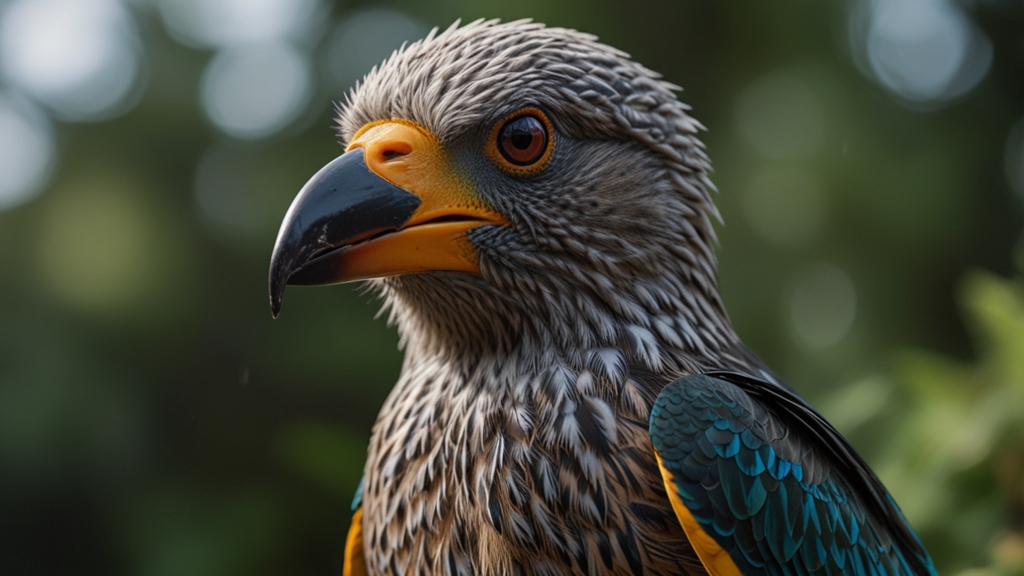Why Are Birds Important to Our Ecosystem? The Shocking Truth
Birds, often admired for their beauty and song, play an indispensable role in our ecosystem. While they are a source of fascination and joy for many, the critical functions they perform are often underestimated. From pollination to pest control, birds contribute to the balance and health of numerous environments. In this article, we will delve into why birds are essential to our ecosystem and uncover some surprising facts about their ecological importance.
Pollination and Seed Dispersal
Many people are aware that bees are crucial pollinators, but birds also play a significant role in this process. Species such as hummingbirds and sunbirds visit flowers to feed on nectar, inadvertently transferring pollen from one bloom to another. This pollination is critical for the reproduction of many plants, including those that produce fruits and vegetables essential for human consumption.
"Birds are natural gardeners. They help propagate plants by pollinating flowers and dispersing seeds, creating more robust and diverse ecosystems."
Seed dispersal is another critical contribution that birds make. By consuming fruits and excreting seeds far from the parent plant, birds facilitate the spread of various plant species. This process not only helps maintain plant biodiversity but also aids in the reforestation of degraded areas, fostering healthier ecosystems.
Pest Control
Birds are natural pest controllers. They consume vast numbers of insects and other small invertebrates that can otherwise become agricultural pests. Whether it's a woodpecker eating bark beetles that damage trees or a barn owl preying on rodents that ravage crops, birds help keep these pest populations in check, reducing the need for chemical pesticides.
This natural form of pest control is invaluable to farmers and gardeners. Not only does it help protect crops, but it also minimizes the environmental damage caused by chemical interventions. Moreover, birds' predatory activities contribute to the overall health of ecosystems by maintaining balanced populations of various species.
Scavenging and Waste Management
Birds like vultures and other scavengers play a vital role in waste management. By consuming carrion (dead animals), these birds help clean up the environment and prevent the spread of diseases that can result from decaying organic matter. This cleanup service is essential for maintaining a healthy ecosystem and preventing outbreaks of disease among animal and human populations.
"Scavenger birds are the unsung heroes of the ecosystem. By processing dead organic matter, they help keep our environments cleaner and healthier."
In many parts of the world, vulture populations are in decline due to poisoning and habitat loss. This reduction has led to increased carcass accumulation, resulting in higher incidences of disease transmission among both animal and human communities. Protecting these birds and their habitats is thus critical for the health of entire ecosystems.
Biodiversity Indicators
Bird populations serve as important indicators of biodiversity and environmental health. Because they are sensitive to changes in their habitats, shifts in bird populations can signal broader ecosystem changes. For instance, declining bird numbers may indicate environmental stressors such as habitat destruction, climate change, or pollution.
Conservationists and scientists often monitor bird species to assess the health of ecosystems. By paying attention to these avian indicators, we can gain insight into ecological balance and take necessary conservation actions to protect vulnerable environments.
Cultural and Economic Significance
Beyond their ecological roles, birds are culturally and economically significant. Birdwatching is a popular recreational activity that generates substantial revenue for local economies through tourism. It also fosters a deeper appreciation for nature and the importance of conservation.
"Birdwatching is not just a hobby but a vital economic activity that supports conservation efforts and communities around the globe."
Many cultures also revere birds for their symbolic meanings and beauty. Birds appear in folklore, art, and religious practices worldwide, underscoring their integral role in human societies. This cultural significance further highlights the importance of protecting bird species and their habitats.
Conclusion
In conclusion, birds are far more than just pretty creatures flitting through the sky; they are a cornerstone of healthy ecosystems. From aiding in pollination and pest control to serving as biodiversity indicators and cultural icons, birds provide numerous ecological, economic, and social benefits. Protecting these feathered friends and their habitats is not merely an environmental concern; it's a necessity for the well-being of our planet and its myriad life forms.













